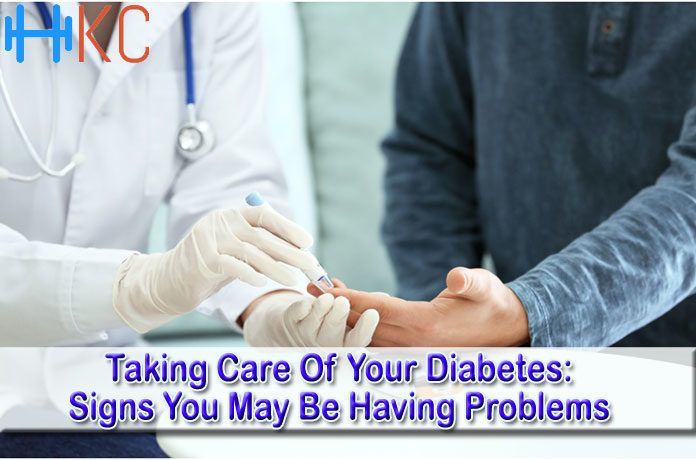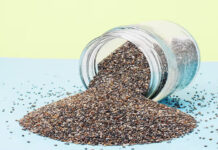If you’ve been diagnosed with diabetes, you’re likely going to be aware that you need to pay particular attention to your diet, exercise, and medicinal intake in order to efficiently manage the sugars in your body. What not a lot of people tell you, however, is that you should be just as aware of signs problems, as well as be aware of signs of improvement. Being aware of red flags that tell you need immediate care is an essential part of effective health management. This is especially given the fact that being able to identify signs of danger immediately can not only save you but other diabetic people around you as well.
In this regard, perhaps a few statistics are in order. For instance, the number of reported diabetes cases has actually increased from 108-million to 422-million from 1980 to 2014, with 8.5-percent of people above 18 actually being at risk. In fact, diabetes appears to be more prone to occur in low-income and middle-income nations, with the condition being a direct cause of 1.6-million deaths in 2015, as well as being a major cause of lower limb amputation, stroke, heart attacks, kidney failure, and blindness.
Diabetes Care: Signs For Care You Need To Pay Attention To
With these statistics in mind, it’s extremely important to remember that diabetes care is more than about just eating the right food and drinking the right medicine. Diabetes care has much to do with identifying signs of immediate assistance as well, and being aware of these key highlights can greatly give you an edge in managing your health.
You may be able to conduct much of the things below with equipment from stores that sell diabetic test strips, or even from medical professionals. In taking care of your diabetes, here are signs you may be having problems:
Are you experiencing skin problems?
You can sometimes get a hint that your blood sugar levels are above normal if you actually encounter skin conditions such as yeast infections. Of course, this doesn’t necessarily imply that skin infections themselves are caused by high blood sugar. These are good indications for you to take extra note of, however.
- See if you experience itching in the folds of your skin that are particularly moist. These are often found in your armpits, between toes and fingers, or under your breasts.
- In terms of genitals, uncircumcised men should take note if they’re feeling itch under their foreskin. Females should also pay attention if they notice discharge, pain, or itching in their vagina.
- Try to check if you also experience hair loss on lower legs, feet, and your toes.
- See if you also have raised skin such as your groin, armpit, or the sides of your neck.
Are you experiencing eye damage?
If your blood sugar is getting higher than normal, it’s very likely that you’ll experience eye problems as well. See a doctor immediately if you feel as though your eye problems and your blood sugar are acting up at the same time.
- See a doctor if you’re starting to get blurry vision or if you’re having trouble reading properly.
- Pay close attention if you’ve started to notice that you’re seeing dark spots or light areas, or if you can’t see well at night.
Are you experiencing nerve damage?
It’s important to keep in mind that signs of diabetes can sometimes show themselves with the way your muscles move. These signs of nerve damage normally manifest with feet and hands, but can also affect other parts of the body such as the heart, genitals, bladder, bowels, and stomach.
- Pay close attention if there’s any form of pain, numbness, or tingling with your hands and feet.
- Also take note if you’re having frequent problems with your stomach like diarrhea, vomiting, and nausea.
- See if you’re having a hard time keeping erections, or if you’re experiencing trouble when it comes to your bladder.
- You can actually work towards managing or improving nerve damage if you manage to get your blood sugar levels to a normal level. Doctors can also prescribe medication for sexual problems, nausea, and pain for further assistance.
Are you experiencing warning signs that escalate over time?
It’s important to remember that diabetes can affect other parts of your body, and can therefore potentially lead to worse conditions. This is especially because having high blood sugar over time can become lethal and lead to conditions such as a coma. You should seek immediate medical assistance should you encounter signs such as:
- If you get tired very often, or if you lose weight, pay close attention to your blood sugar levels.
- If you feel hungrier than usual even if you’re eating too much, you should start paying closer attention if your sugar is getting high.
- If you’re peeing more often or getting thirstier than usual, try to check if your sugar is in check.
Are you experiencing problems that don’t have warning signs?
You should also try to check if you’re experiencing conditions normally associated with diabetes and high blood sugar, but aren’t always “related” until both conditions are diagnosed.
- For instance, pay close attention if you have heart disease. This is especially since heart disease symptoms may exist even if you didn’t have a heart attack, so make sure you’re aware of these.
- You should also be mindful if your blood pressure is high or not, as this can be tied to diabetes.
- You should also pay closer attention if you have kidney disease, as there aren’t any warning signs you have them until your kidneys are actually damaged.
The Bottomline: Staying Alert For Better Diabetes Management
When you have diabetes, taking care of your health – particularly your sugars – is an essential part of its management. You can’t simply just eat whatever you want, forget your medicine, or not have an active lifestyle without risking your diabetes taking some form of toll in your life. Likewise, simply “following instructions” without proper management and assessment of your health won’t allow you to take particular note of the status of your diabetes. In terms of efficient diabetes care, like in the above, you should be just as aware of signs you need better diabetes care as you’re aware of things you need to do to keep you healthy. If you’re looking into more specifics in terms of how diabetes can affect a particular health situation, it may also be helpful to consult a medical professional on the matter.























